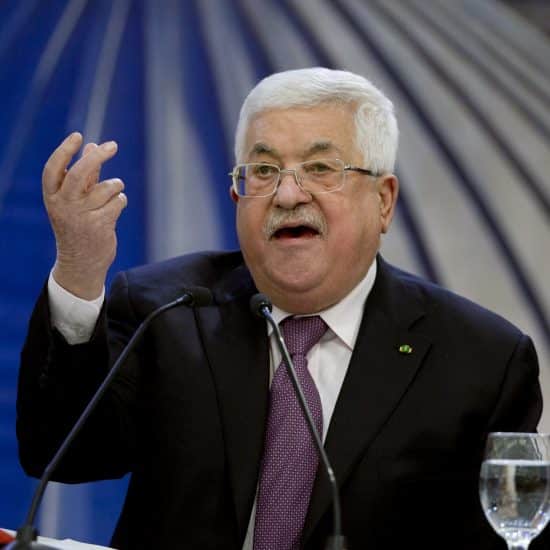CHESTERFIELD, Mo. — American Baptist Churches USA President Don Ng recalled his own experiences as a Chinese-American in reminding Great Rivers Region delegates they are God’s people.

Don Ng, president of American Baptist Churches USA and senior pastor of First Chinese Baptist Church of San Francisco, preaches during the opening worship service of the Great Rivers Region Annual Assembly at the Doubletree Hotel in Chesterfield, Mo.
|
Speaking in the first of two worship services Oct. 3-4 at the Doubletree Hotel in Chesterfield, Mo., Ng recounted that his father, a Chinese immigrant, had already started a laundry business in the Roxbury neighborhood of Boston when he was drafted into the U.S. Army to serve in World War II.
In those days, serving in the U.S. military automatically gave him citizenship and enabled him to bring his family to the States.
“When the earliest Chinese laborers came to the U.S. in the mid-1800s to work on the farms picking fruits and vegetables, stood on the assembly lines canning food in Sacramento or came as ‘scabs’ to break up a shoe manufacturing factory strike in Boston, a phrase was coined: ‘It’s a Chinaman’s chance,’” Ng said.
“This meant that the probability of a Chinese succeeding or making it was virtually impossible,” he explained.
“But these early Chinese male sojourners had no intention of settling in the wild, wild west when they had come from a civilization over thousands of years old rich with culture, arts and history,” he said.
Their goal was to do honest work and send money back so that their wives and children could live in comfort.
Events like Word War II and the Chinese cultural revolution changed that. Ng’s father was helped by First Baptist Church of Boston to learn how he could reunite his family. He managed to bring his wife and son to Boston, where Ng was later born.
“I can confidently proclaim that the American Baptists inspired by God’s gracious love made evident in Christ’s sacrifice on the cross gave this Chinaman the chance to be a child of God,” Ng said. “With God’s help, I beat the Chinaman’s chance!”
Ng praised a new film produced by the ABC general secretary’s office that reminds viewers that “American Baptists led the way in civil rights, women in ministry and foreign missions that truthfully have changed the course of human history,” he said.
Citing 1 Peter 2:2-10, Ng reminded listeners of Jesus, the living stone rejected by builders who became the cornerstone, and said that followers of Christ are living stones themselves, a chosen people.
“The people to whom Peter was writing felt that they were abandoned,” Ng explained. “Chinese Americans identify with this passage because we often feel like resident aliens dispersed from our homelands.
“When American Baptists see ourselves as being resident aliens in a foreign land, we are more prone to develop our own stories of God’s saving grace,” he added.
The ability to be a living stone is available to the rich and the poor, former prisoners anxious for a fresh start, hard-working laborers and others, he said.
He identified a prominent group in today’s world, immigrants — some of longtime duration in the U.S. and some just children escaping violence in Latin America — who would benefit from immigration law reforms.
Legislators have balked at passing such reforms, he lamented. Without reform, such people have only a “Chinaman’s chance” to make it in America, he said.
Ng’s own testimony references the Baptist Youth Fellowship at First Baptist Church in Boston, which “provided me that affirmation and confidence to believe in myself and to realize that I was not a person but now in the eyes of the Lord, I am God’s person.”
In the closing worship service of the annual assembly, Ng referenced Isaiah’s vision in Isaiah 11, when he describes the Messiah, the “root of the stump of Jesse.”
Further, the passage describes natural enemies from the animal world one day living in peace and harmony with each other.
Ng noted that American Baptists are recognized as being the most diverse denomination in America, pointing out that no one group has more than 50 percent of the denomination’s total membership. The denomination 40 years ago consciously bucked the trend to encourage Baptist groups to merely work and relate with separate, homogeneous groups.
“I don’t believe the racial/ethnic communities just wanted to remain isolated to their own ghettos,” he said. “Rather, they wanted to become integral members of a larger faith community known as Baptists.”
While that approach may be harder, American Baptists believe that God is calling them to be more than they can be, he said.
“Isaiah’s vision stands in direct contrast to the terror and brutality that pervade our world and inform our decisions, both personal and collectively,” Ng said. “News of terrorism, war, economic collapse and climate catastrophe instill a deep sense of anxiety among us all.”
According to Isaiah, the transformation from a culture of fear to a world of peace begins with a stump — something without apparent life, he said.
“This is how hope gets its start — it emerges as a tiny tendril in an unexpected place,” he said. “In your personal life, where do you feel cut off?
“Isaiah proclaimed the coming of Christ. The little shoot will rise to be a new kind of king, one who judges with righteousness and brings justice for the poor and the meek,” Ng said.
“He manifests a power unlike any other, and his power is for the weak,” he said. “From this declaration proceeds the vivid vision of the peaceable kingdom, a compelling portrayal of both aggression and weakness overturned.



